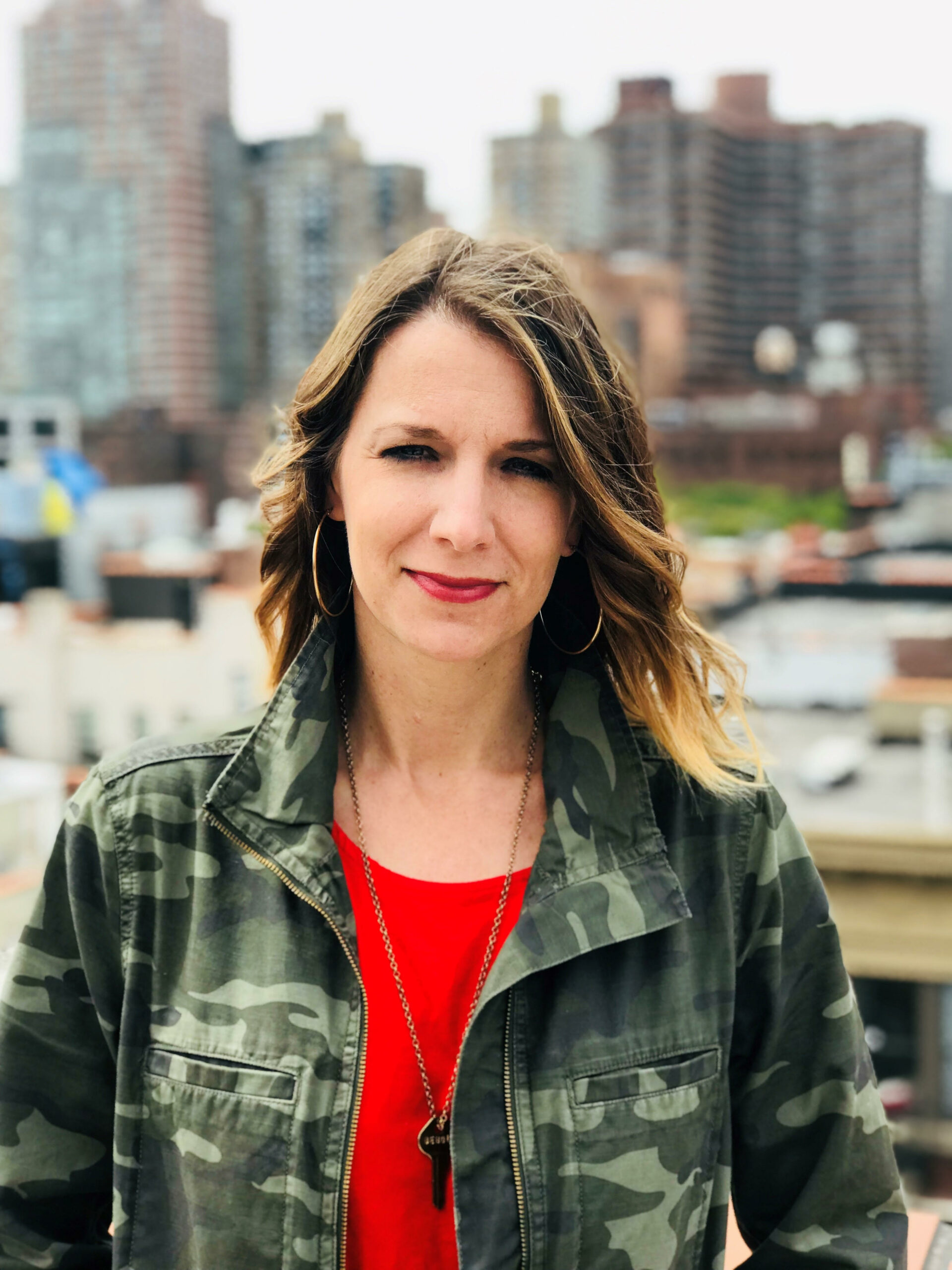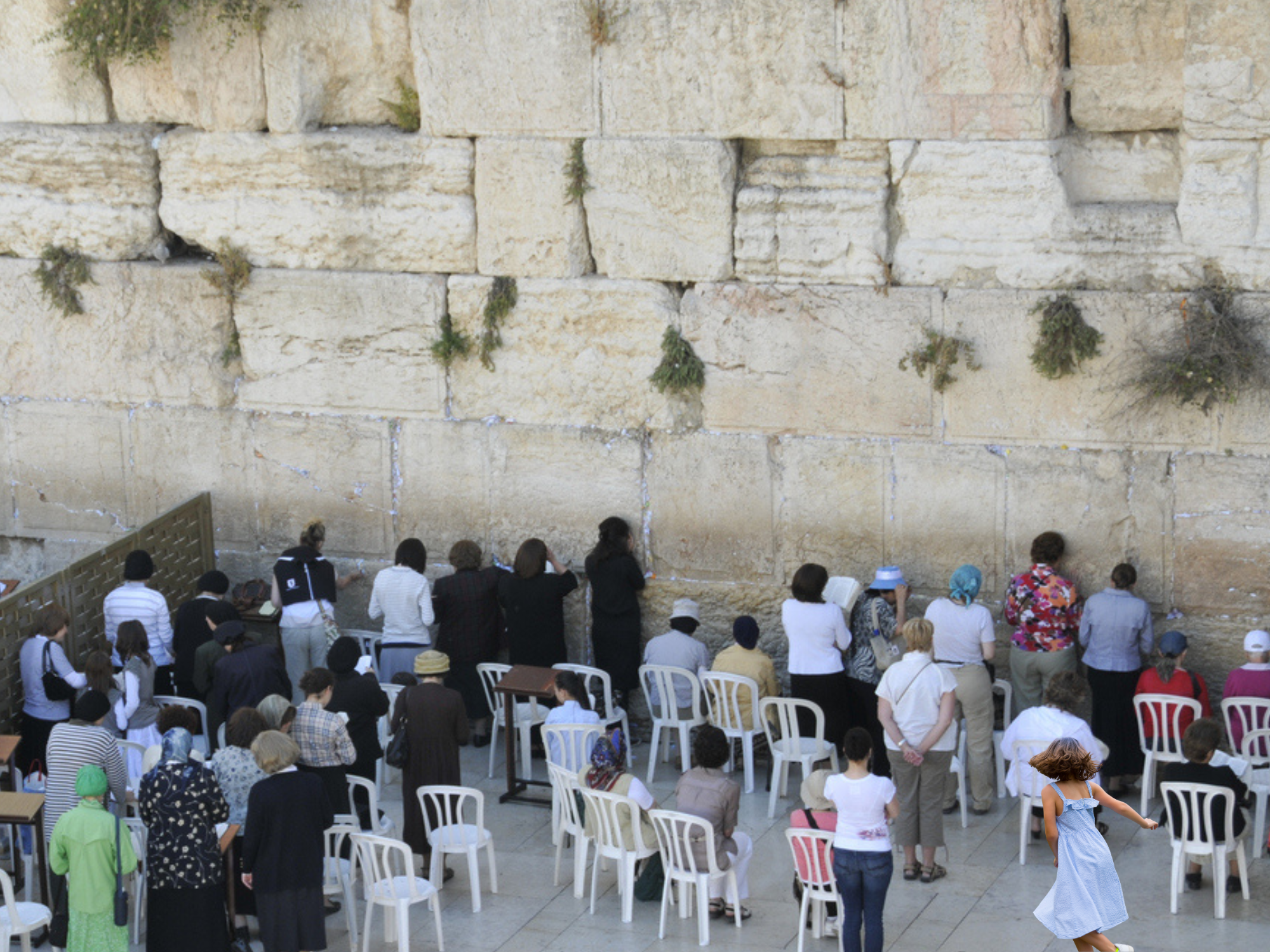It was a sweltering July day as I stood in my long skirt under the hot sun on ancient stones. My senses already alert, I was keenly aware that I was in a significant space. Not merely significant—it was holy. The Kotel, which until that day I had only known as the Western Wall or Wailing Wall, was lined with men and women dressed in black and white, praying fervently, prayer books in hand, slipping rolled-up pieces of paper into tiny crevices. How many tiny pieces of paper has this wall held? How many prayers has it heard? Suddenly a celebration erupted right behind me, with four young men singing at the top of their lungs and dancing from one end of the plaza to the other. Exuberant joy right alongside tearful lament—it felt oddly appropriate for the day. Rabbi Brad Hirschfield, our gracious guide of the Stand and See Fellowship, invited our group of Christian pastors to pray. He noted that while this wall is known as a profoundly Jewish place, it is also a profoundly human place. It is a place where we can bring all of ourselves. We all cry. We all pray. “Today,” he said, “This is your place, too.”
With that invitation, I made my way to the women’s section of the wall, deferring to culture and tradition rather than my own egalitarian bias. I sat in a plastic lawn chair, praying and reflecting while waiting for a space to open up so that I, too, could take my turn at the wall. Right in front of me was a young Jewish girl, prayer book in hand. I had seen many pictures and videos of people at this wall, rocking back and forth. But this little girl? She couldn’t help but dance. She swayed enthusiastically, bouncing her knees to her own internal rhythm, and I could almost hear her singing her prayers. She had brought her whole self to this wall to pray. I immediately smiled and thought, “That could be me.” I often use the phrase coined by James K. A. Smith, “There is no formation without repetition.” Just like me, this little girl was being formed in the practice of prayer. She knew she was welcome in this place. She knew she was free to dance, even in a space known for weeping. She was adding her unique voice to the symphony of voices who had gone before her and who will follow after her. Encouraged by her example, I stood and found my own spot at the wall, carefully slipping my lime-green folded-up prayer note into the nearest crack. And then, as I placed my hand on the wall, the tears began to flow. The prayers of millions of pilgrims reverberated underneath my palm, and the only words that could tumble out of my mouth fast enough were the simplest and most significant to me: “Thank you, Jesus.”
In this profoundly human place, I was reminded that we are all invited to connect with a profoundly divine God through prayer. Whatever our cultures, traditions, and even religions may be, there is a God who invites and delights when people pray. We can bring our whole selves, dancing, weeping, or both. And as we pray, we are formed, not merely by our own words and actions, but by the God in whose very image we are formed.
There is no formation without repetition. What if, like our repeated prayer practices, we continually brought our whole selves before one another in a posture of learning, listening, and leaning in to understand more deeply? To me, that feels like peace.
What if, time and time again, we set aside our own biases in order to truly welcome the stranger, the lonely, and the marginalized? To me, that feels like justice.
What if we became known as people who, without compromising our particularities, consistently loved and cared for one another extravagantly? To me, that feels profoundly human.
And to the little girl at the Kotel, keep dancing and praying and singing and weeping. To me, that feels a lot like hope.

Jenn Petersen serves as Director of Mobilization NYC for International Justice Mission. She is also co-founder and co-lead pastor of Resurrection Life NYC, a multi-ethnic congregation on the Upper East Side of Manhattan. Jenn is an avid singer/songwriter and worship leader and is passionate about justice, leadership, and unleashing people to become who they were created to be. In her free time, you can find her exploring NYC, reading, writing, making music, or doing anything creative. Jenn holds a Master of Divinity from Wesley Seminary and a Bachelor of Music from the University of Northern Iowa. She currently resides in Harlem with her husband, two college-age children, and their dog Charlie Parker.

